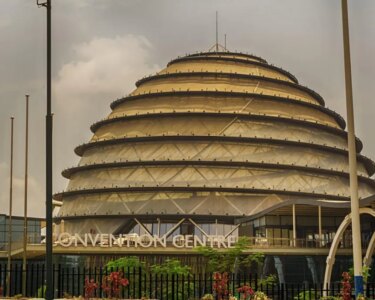
If you’re considering a career as a meeting planner, getting started can be overwhelming. Few colleges offer meeting planning classes or degrees, and many companies don’t have full-time meeting planner positions.
But there are many educational resources available online, industry associations and networking groups you can join, and certifications you can take. Whether you plan the occasional event, are an administrative assistant or executive assistant with meeting responsibilities, or are just curious about meeting planning as a career, this guide is for you.
Here are a few resources to help get you started:
Which Colleges Offer Meeting Planning Degrees?
There’s no question that a college degree is desirable if you’re looking to build a career as a professional meeting planner.
According to the career resource platform Zippia, 78% of meeting planners have a bachelor’s degree and 10% have an associate’s degree. A small percentage, 6%, have master’s degrees.
A Master’s in Meeting and Event Management program, the first graduate-level program in North America, is offered by the L. Robert Payne School of Hospitality and Tourism Management at San Diego State University in collaboration with Meeting Professionals International.
Planners often hold degrees in business, communications, marketing, or hospitality, and a small number of colleges offer meeting planning degrees or coursework.
Windsor Crawford, sales director, Select Shades Eyewear Events, who heads up the Young Leaders mentorship program at SITE, emphasizes that while education is important, so is keeping abreast of the trends and implementing them into your events.
“Continuing education is the most important aspect. Each year, I see new event trends, whether that be the decor, gifting, themes, group size, activities, CSR, technology, location, and more. While it may seem daunting to continuously evolve your program, it’s also important,” said Crawford, who has her bachelor’s in business administration.
The following colleges and universities offer either bachelor’s degrees or concentrations in meeting management:
Bachelor’s Degrees
- Rosen College of Hospitality Management (University of Central Florida), Orlando
B.S. in Event Management.
- Purdue University, West Lafayette, Ind.
B.S. in Hospitality and Tourism Management. Includes event and
meeting planning coursework.
- San Diego State University, San Diego, Calif.
B.S. in Hospitality and Tourism Management. Offers a specialization in meetings and events. Also:
Master’s degree in Meeting and Event Management.
- University of Nevada, Las Vegas (UNLV), Las Vegas
B.S. in Hospitality Management. Features courses in meeting and
convention management.
- Johnson & Wales University (Multiple Campuses)
B.S. in Event Management. Focuses on event and meeting planning strategies.
B.A. in Event and Meeting Management.
Certificates
1. New York University (NYU), School of Professional Studies
Certificate in Meeting and Conference Management.
2. San Francisco State University, College of Extended Learning, San Francisco
Certificate in Event and Meeting Planning.
3. George Washington University, Washington, D.C.
Event Management Certificate.
4. Temple University, Philadelphia
Event Leadership Executive Certificate.
How Can You Find a Job as a Meeting Planner?
According to the U.S. Bureau of Labor Statistics, there are 149,000 meeting planner jobs in the country, with an average of 16,500 openings for meeting, convention, and event planners projected each year.
What is the average salary for full-time meeting planners? Estimates vary widely, with Glassdoor showing a range between $67,000 and $118,000 per year, a median of $88,623, and an average of $75,365.
The Professional Convention Management Association (PCMA) 2024 Salary Survey pegged the average salary of North American meeting planners at $103,150, with planners without direct reports earning $87,000.
To find meeting planner jobs, you can search online listings on sites like Indeed, Monster, and LinkedIn, as well as explore the job boards of industry associations such as Meeting Professionals International (MPI) and PCMA. Common search terms are ‘meeting planner,’ ‘event planner,’ or ‘conference planner.’
Grow Your LinkedIn Connections
Social media sites, especially LinkedIn, are good sources for learning not only about job openings but also about the cultures of various companies.
“If you have a certain industry or corporation in mind, you can learn a lot by befriending people on LinkedIn,” said Dawn Penfold, president of Meetingjobs, A Cadre Company. “You can make connections and get information about employers through chatting on LinkedIn. The only caveat is to not do this to excess. You don’t want to be perceived as a stalker.”
When you learn of a job opening, act quickly, because the opening may not be there tomorrow. Penfold and other industry recruiters agree that the planners who apply first are the ones who get the most attention.
Consider Temping
Because of tight budgets, many companies are making the decision to fill meeting planning positions on an as-needed rather than full-time basis.
Cadre, sister company to MeetingJobs, places contract and freelance positions through its online platform. There is no fee to be part of Cadre’s roster of 6,500+ event freelancers; the only cost is a $25 charge to complete a background check. Two other companies that place temporary planners are Soundings and MeetingsNEvents.
“The planner employee base was forever changed after Covid,” said Todd Taranto, president of Cadre. “Companies rebuilt to 80% full-time employees and added 20% variable labor to scale up or down as needed.”
Taranto has seen companies hiring contractors for jobs as small as two to four weeks for site inspections or hotel contracting, alongside the more standard three- to nine-month gigs for a single event.
You never know if these occasional gigs will turn into permanent ones, or even a full-time position. And meanwhile, you can continue your job search.
What is the CMP for Meeting Planners?
The Certified Meeting Professional (CMP) program, administered by the Events Industry Council (EIC), was launched in 1985 to enhance the knowledge and performance of meeting professionals, promote the status and credibility of the meeting profession, and advance uniform standards of practice.
The CMP is not mandatory, but it is the most widely recognized certification for meeting planners, and one that senior planners hold in high regard. It is also the only certification, meaning it is verified by a third party. As of 2024, more than 13,000 meeting planners hold this certification.
The CMP healthcare subspecialty (CMP-HC) program was launched in 2014 to address the needs of a growing segment of CMPs in the healthcare industry. Those seeking this certification must first pass the CMP exam. There are only 46 individuals with their CMP-HC certifications.
Before You Get Started: Qualifications for the CMP
To take the CMP exam, you must have two things:
- Work experience — 36 months of full-time experience in the meetings industry, or 24 months with a relevant degree. Both the experience and degree must have taken place within the past five years.
- Continuing education — 25 clock hours of continuing education, which can comprise industry-related classes, workshops, or professional events within the past five years, up to 12.5 of which may be non-industry-specific activities if the subject matter aligns with one of the 12 domains in the CMP-International Standards (CMP-IS).
Individuals must also pledge to follow the CMP Code of Ethics, a set of basic standards of values and conduct.
Exam Details
Before you begin your studying regimen, the EIC suggests that you review the CMP-International Standards (CMP-IS) to decide which of the nine domains you have the least experience with, then concentrate your efforts on that area. In addition to the Standards, the CMP Handbook and Addendum are required reading.
Answers to the exam will be based on a combination of real-world experience and the required education.
CMP testing is offered year-round at one of Prometric’s global testing centres or remotely. The exam consists of 165 multiple-choice questions. The EIC web site offers a variety of resources, from prep materials to sample exams.
The CMP application submission fee is $350 (nonrefundable), and the exam fee is $525 (nonrefundable).
Meeting Planner Groups and Associations You Need to Know
Talk to anyone in the meetings industry and you’ll hear again and again: “It’s a relationship business.”
It’s all about connections. Planners rely heavily on their relationships for recommendations on new hotels and suppliers, as well as leads on clients or jobs.
Creating industry relationships can be difficult to do when so many planners work remotely. For those who can’t get to live events, many industry groups meet virtually, and some have What’sApp groups or Slack channels. The major industry associations also have local chapters, which is a great place to start building a network of fellow planners and suppliers located in your area. In addition, there are also informal networking groups that meet online and in person and are known for their strong communities.
Following are industry associations, online groups, and communities where you can get started building your network.
Industry Associations
- Meeting Professionals International (MPI)
DallasOne of the largest global associations for meeting and event professionals, MPI has 17,000 ‘engaged’ members in 24 countries, with 90 chapters and clubs. Its major convention, the WEC, rotates among different cities each summer. Online, planners will find a member directory, information on its several certificate programs, a career center, and more.
- International Live Events Association (ILEA)
McLean, Va.ILEA’s 2,000 members are creative event professionals from 35 countries. It hosts an annual convention, regular webinars, and is known for the Esprit Awards for the most outstanding live events in the industry.
- Professional Convention Management Association (PCMA)
ChicagoPCMA bills itself as ‘the world’s largest community for business events strategists, providing senior-level education, networking, and market intelligence for the global business events industry,’ with 8,400 members in 59 countries. In 2020, it acquired the Corporate Event Marketing Association (CEMA), the premier community for B2B event marketers.
- Global Business Travel Association (GBTA)
Alexandria, Va.GBTA is the business travel industry’s largest member-focused organization, with 8,500 travel manager members, some of whom plan meetings. The association offers a Fundamentals of Strategic Meetings Management online course, and its Meetings and Events Committee is known for its thought leadership.
- Association of Meeting Professionals
Washington, D.C.AMP is an intimate group of 250 meeting professionals who come together for local meetings, community outreach, and an annual golf tournament.
Niche Associations
- Society for Incentive Travel Excellence (SITE)
ChicagoSITE’s members are 2,900 incentive travel professionals located in 90 countries, working in corporations, agencies, airlines, cruise companies, and across the entire destination supply chain. In addition to its annual conference, the organization is known for incentive industry research, spearheaded by the SITE Foundation.
- Society of Government Meeting Professionals (SGMP)
Clifton, Va.Dedicated exclusively to serving individuals who plan and execute government meetings in the U.S., SGMP has nearly 1,500 members across 18 chapters and 3 satellite chapters.
- National Coalition of Black Meeting Professionals (NCBMP)
Alexandria, Va.NCBMP is dedicated primarily to the training needs of African American meeting planners, with 1,500 members. A partnership with MPI offers special benefits to members, including access to MPI’s network and resources.
- LGBT Meeting Professionals Association (LGBT MPA)
Alexandria, Va.LGBT MPA is the leading voice for the LGBTQIA2+ global events community. It has a community of 2,200 members.
- Financial & Insurance Conference Professionals
ChicagoFocused solely on the insurance and financial services industries, FICP has more than 700 meeting professional and 650 hospitality partner members.
- Religious Conference Management Association (RCMA)
IndianapolisRCMA is the only multi-faith, not-for-profit, international association whose members are exclusively religious meeting planners.
Social Media Groups
1. LinkedIn Groups
Though LinkedIn groups are not as popular as they used to be, there are still some in the events industry that are worth checking out. Some groups are private, and planners need to apply to join. A couple of active groups are Event Pros, Who’s Who in Events, and Event Planners and Coordinators.
2. Facebook Groups
Popular planner groups on Facebook are Event Integrity, moderated by long-time meeting industry leader Joan Eisenstodt; the National Meeting Planners Group; SPIN Planners (Members Only); and the U.K.-based group The Delegate Wranglers (which also has a Facebook for planners in the U.S. and Canada). All are private and require that planners apply to join.
Skift Meetings is also active on LinkedIn, Facebook and X.
Communities
1. Club Ichi
Club Ichi bills itself as ‘the #1 place for B2B event marketers to connect.’ Free membership offers access to ‘content and conversation.’ Upgraded membership adds year-round access to a Slack channel and live events.
2. Event Leaders Exchange (ELX)
ELX is a community of senior event leaders from global Fortune 500 brands. Membership is by acceptance only. The group offers roundtables, benchmarking reports, and leadership summits.
Focused on independent planners, the TEN Collective offers Meetups, Masterminds, and other resources, such as a template library and a contract clause database, to its 200 members. Meetings are not sponsored and have no sales agenda.
4. Event Pros Circles from The Vendry
The Vendry by Groupize’s ‘Circles’ Slack channel has free, curated discussions for event professionals on topics ranging from jobs to speakers to venues and vendors. (As of publication, acceptance is on a waitlist only.)
Many industry associations also have their own online communities for members. For example, MPI has communities for small business owners, women, administrative professionals, and other niche groups.
How Much Do Meeting Planners Make?
Meeting planning as a profession is anything but a straight path. In fact, most planners report that they ‘fall into the business,’ rather than intentionally deciding they want to work in it.
It’s the same with salaries — there are few rules and many variables. Skift Meetings took a closer look at how much meeting planners make, by education, experience level, region, and type of organization.
Salary Stats
The U.S. Bureau of Labor Statistics’ most recent median salary for meeting, convention and event planners (2023) is $52,560, with the top 10% earning $88,000 per year.
Other salary estimates vary widely, with Glassdoor showing a range between $67,000 and $118,000 per year, a median of $88,623, and an average of $75,365. Indeed lists the average salary at $64,272, with $46,272 on the low end and a high of $87,933.
Professional Convention Management Association (PCMA)’s 2024 Salary Survey pegged the average salary of North American meeting planners much higher, at $103,150 — a 6% increase from the previous year’s average of $97,130. The average salary for association meeting planner respondents was $101.864; corporate planners reported an average of $89.457. The survey also pointed out a gender pay gap, with female meeting planners earning an average of $84,000 compared to $100,000 for their male counterparts.
As with most positions, a scan of job postings on LinkedIn, Indeed, and Cvent Careers found that companies in major cities such as New York, and technology hubs such as San Francisco, advertised the highest salaries.
Does College Count?
Does a college degree lead to higher pay? Most sources, including MPI, say it depends.
Often, continuing education and certifications — the CMP (Certified Meeting Professional); CSEP (Certified Special Events Professional); DES (Digital Event Strategist); and CMM (Certificate in Meeting Management) among them — can add another 10% to 20% to a planner’s salary. However, a college degree is required to land a role at many Fortune 500 companies and major associations.
Salaries also vary widely depending on the type of organization. Corporations with in-house meeting planning departments tend to pay the most, from $60,000-$100,000, while associations pay from $50,000-80,000. Salaries at independent meeting planning companies, which plan events for corporate and association clients, start at around $55,000.
👇Follow more 👇
👉 bdphone.com
👉 ultractivation.com
👉 trainingreferral.com
👉 shaplafood.com
👉 bangladeshi.help
👉 www.forexdhaka.com
👉 uncommunication.com
👉 ultra-sim.com
👉 forexdhaka.com
👉 ultrafxfund.com
👉 bdphoneonline.com
👉 dailyadvice.us




